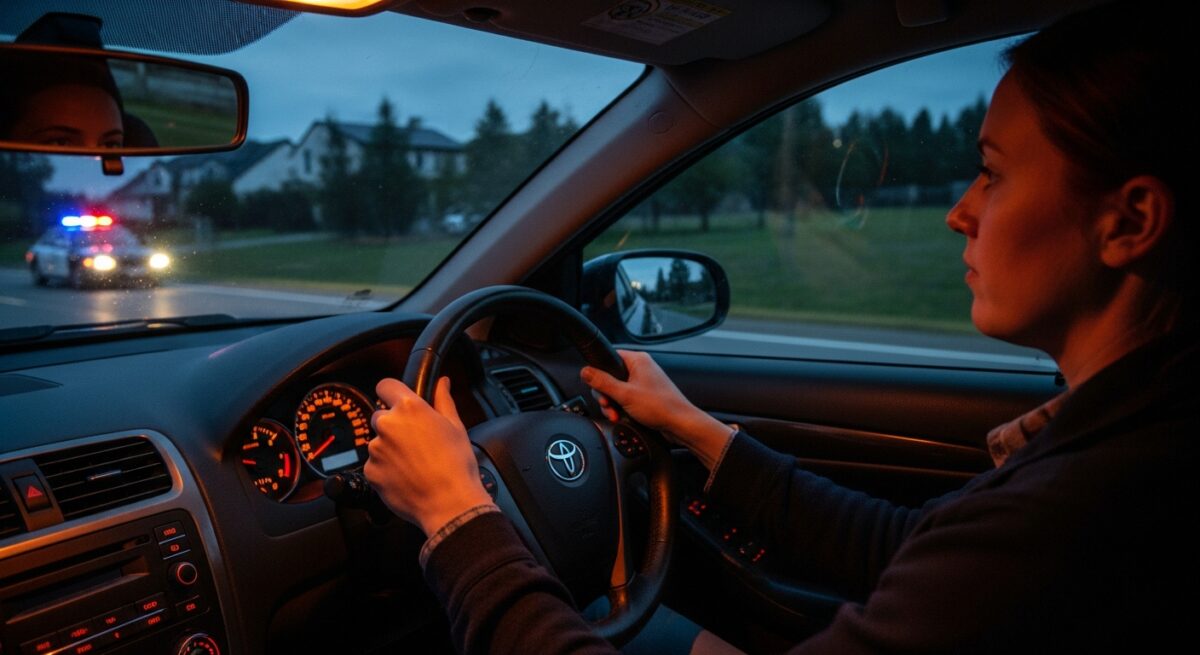What Are the Legal Blood Alcohol Limits for DUI? State-by-State Guide

Being stopped by law enforcement on suspicion of driving under the influence (DUI) can be a stressful and confusing experience. One of the most common questions drivers ask is: Can I refuse a breathalyzer or sobriety test during a DUI stop? The answer is not straightforward and depends heavily on your jurisdiction, the type of test requested, and the legal framework governing DUI enforcement.
This detailed article will explore your rights, the consequences of refusal, and how you can protect yourself legally. Whether you are facing a DUI stop in California (ZIP 90001), Texas (ZIP 73301), Florida (ZIP 33101), or elsewhere, understanding your options is crucial.
What Happens During a DUI Stop?
When a law enforcement officer suspects that you may be driving under the influence of alcohol or drugs, they will initiate a traffic stop. This suspicion can be based on erratic driving, traffic violations, or other indicators such as the smell of alcohol or slurred speech.
During the stop, the officer may:
-
Ask for your driver’s license, registration, and proof of insurance.
-
Observe your behavior and physical condition.
-
Request that you perform field sobriety tests.
-
Ask you to submit to a breathalyzer or other chemical tests.
Understanding what happens during this process can help you stay calm and make informed decisions.
Types of DUI Tests: Breathalyzer vs. Sobriety Tests
Field Sobriety Tests (FSTs)
Field sobriety tests are physical and cognitive tasks designed to assess impairment. These include:
-
Walk-and-Turn Test: You walk heel-to-toe along a straight line.
-
One-Leg Stand Test: You balance on one foot for a specified time.
-
Horizontal Gaze Nystagmus (HGN): The officer watches your eye movements for involuntary jerking.
These tests are subjective and rely on the officer’s interpretation.
Breathalyzer Tests
Breathalyzer devices estimate your blood alcohol concentration (BAC) by measuring alcohol in your breath. This is a chemical test and is often used as evidence in DUI prosecutions.
Blood and Urine Tests
In some cases, especially if drugs are suspected, blood or urine samples may be taken to measure impairment.
Your Legal Rights During a DUI Stop
Right to Remain Silent
You have the constitutional right to remain silent and not answer incriminating questions. Politely inform the officer that you wish to exercise this right.
Right to Refuse Field Sobriety Tests
In most states, field sobriety tests are voluntary. You can refuse to perform them without immediate penalties, but refusal may raise suspicion.
Right to Refuse Preliminary Breath Tests (PBTs)
Some states allow you to refuse preliminary breath tests conducted roadside without penalty, but this varies.
Implied Consent and Chemical Tests
When you drive, you consent to chemical testing if arrested for DUI. Refusing these tests can result in penalties.
Implied Consent Laws: What You Need to Know
Implied consent laws mean that by driving, you agree to submit to chemical tests if lawfully arrested for DUI. These laws are designed to help law enforcement obtain evidence of impairment.
-
If you refuse a chemical test (breath, blood, or urine), you may face automatic license suspension.
-
Penalties for refusal can be as severe as those for a DUI conviction in some states.
-
In some states, refusal can be used as evidence against you in court.
Because implied consent laws vary by state, it’s important to understand the specific rules where you live or are driving.
Consequences of Refusing DUI Tests
Administrative Penalties
Refusing a breathalyzer or chemical test usually triggers administrative penalties such as:
-
License suspension or revocation (typically 6 months to 1 year for first offenses).
-
Fines and fees for reinstatement.
-
Mandatory alcohol education or treatment programs.
Criminal Penalties
In some states, refusal can lead to criminal charges or enhanced DUI penalties.
Impact on Your DUI Case
Refusal does not guarantee you will avoid a DUI conviction. Prosecutors can use other evidence such as officer observations, video footage, and witness statements to build their case.
State-Specific Laws and Penalties
California (ZIP 90001)
-
Implied Consent: Yes
-
Refusal Penalty: 1-year license suspension for first offense
-
FSTs: Voluntary but refusal may be noted
Texas (ZIP 73301)
-
Implied Consent: Yes
-
Refusal Penalty: 180-day license suspension for first offense
-
FSTs: Voluntary
Florida (ZIP 33101)
-
Implied Consent: Yes
-
Refusal Penalty: 1-year license suspension for first offense
-
FSTs: Voluntary
New York (ZIP 10001)
-
Implied Consent: Yes
-
Refusal Penalty: 1-year license revocation and $500 fine
-
FSTs: Voluntary
Illinois (ZIP 60601)
-
Implied Consent: Yes
-
Refusal Penalty: 1-year license suspension for first offense
-
FSTs: Voluntary
Because laws vary widely, it is essential to consult an attorney familiar with your state’s DUI laws.
If you are facing DUI charges or test refusal penalties, contact a DUI attorney today or call 833-279-1850 for expert legal advice.
When Might Refusing a Test Be a Strategic Decision?
Refusing a breathalyzer or sobriety test is a serious choice. While refusal has penalties, in some cases, it may be a better option than providing incriminating evidence.
Potential Benefits
-
No BAC evidence for prosecution.
-
Opportunity to challenge the legality of the stop or arrest.
Potential Risks
-
Automatic license suspension.
-
Use of refusal as evidence of guilt.
-
Possible criminal penalties.
Each situation is unique. Consulting a DUI lawyer before deciding how to proceed is critical.
For personalized guidance on whether to refuse a test, get a free case review or call 833-279-1850 now.
Steps to Take if You Are Arrested for DUI
-
Stay Calm and Respectful: Avoid confrontation with officers.
-
Exercise Your Right to Remain Silent: Politely decline to answer questions beyond basic identification.
-
Request an Attorney: Do not make statements without legal counsel.
-
Document the Incident: Write down details immediately after the stop.
-
Request a Hearing: File a request to contest license suspension within the timeframe required by your state.
Taking these steps can protect your rights and improve your chances in court.
Need help with your DUI arrest? Connect with a DUI defense lawyer or call 833-279-1850 for immediate assistance.
How a DUI Attorney Can Help You
A qualified DUI attorney can:
-
Challenge the legality of the traffic stop and arrest.
-
Question the accuracy and administration of sobriety and chemical tests.
-
Negotiate plea deals or reduced charges.
-
Represent you in administrative hearings to protect your driver’s license.
-
Provide expert advice tailored to your case and jurisdiction.
Don’t face DUI charges alone. Get connected with a top DUI lawyer or call 833-279-1850 today.
Frequently Asked Questions (FAQs)
1. Can I refuse a breathalyzer test during a DUI stop?
Yes, but refusal usually triggers administrative penalties such as license suspension under implied consent laws.
2. Are field sobriety tests mandatory?
Generally, no. You can refuse FSTs without immediate penalties, but refusal may lead to arrest based on officer observations.
3. What happens if I refuse a blood test?
Refusing a blood test can have the same consequences as refusing a breathalyzer, including license suspension and possible criminal penalties.
4. Can refusing a test help my DUI case?
It depends. Refusal removes chemical evidence but results in automatic penalties and may be used against you in court.
5. How long will my license be suspended if I refuse a test?
Suspension length varies by state but typically ranges from 6 months to 1 year for a first refusal.
6. Can I get a restricted license after refusal?
In many states, you can apply for a restricted or hardship license, often requiring an ignition interlock device.
7. Should I contact a lawyer immediately after a DUI stop?
Yes. Early legal advice can protect your rights and improve your defense.
For more answers and legal help, contact a DUI lawyer now or call 833-279-1850.
Conclusion and Next Steps
Refusing a breathalyzer or sobriety test during a DUI stop is a complex decision with significant legal consequences. While you have rights, implied consent laws mean refusal almost always results in administrative penalties and can affect your criminal case. The best approach is to remain calm, understand your rights, and seek legal counsel immediately.
If you or a loved one is facing DUI charges or test refusal penalties, don’t wait. Get a free case review from experienced DUI attorneys or call 833-279-1850 now. Protect your rights, your license, and your future.
Need legal assistance now?
Get your free DUI case review here or call 833-279-1850. We connect you with top DUI lawyers in your area.
Disclaimer: This article is for informational purposes only and does not constitute legal advice. Laws vary by state and individual circumstances. Consult a qualified attorney for advice regarding your specific situation.
For additional information, visit the National Highway Traffic Safety Administration or your state’s Department of Motor Vehicles website.


